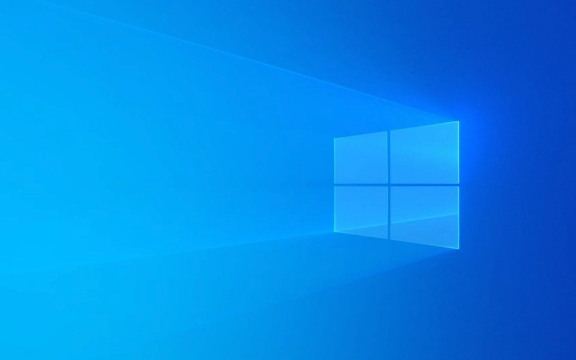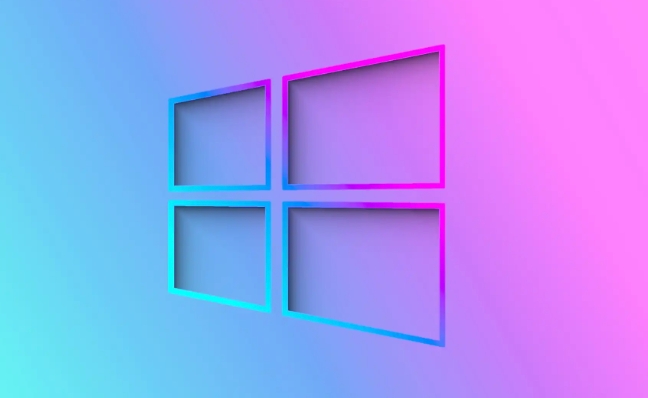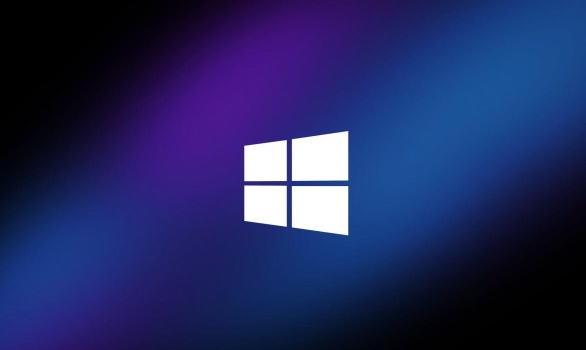Disable shortcut-based layout switching by setting "Switch Input Language" and "Switch Keyboard Layout" to Not Assigned in Input language hot keys. 2. Remove unwanted languages or keyboard layouts in Settings under Preferred languages to reduce accidental switching. 3. Set a default input method in Advanced keyboard settings to ensure consistency across apps and users. 4. Turn off automatic language settings that allow Windows to change the default based on app usage. 5. Check for interfering third-party apps, update keyboard drivers, or use Group Policy to prevent layout changes if the issue persists. The problem is typically caused by enabled shortcuts or multiple input methods, and can be resolved by minimizing layouts and disabling hotkeys, ensuring the keyboard layout remains stable.

Windows 10 keeps changing keyboard layout? You're not alone — this is a common and frustrating issue, especially for users who work with multiple languages or use shortcuts frequently. The system often switches layouts unexpectedly, usually triggered by a key combination or background app interference. Here's what's likely causing it and how to fix it.

? Why Windows 10 Keeps Changing Keyboard Layout
The most common reasons include:
-
Accidental use of shortcut keys (like
Win SpaceorCtrl Shift) that switch input methods. - Multiple language packs installed with "Allow the desktop language to change independently" enabled.
- Apps or services (like remote desktop tools or language input managers) changing the layout in the background.
- Windows updates resetting or reordering input preferences.
? How to Stop Keyboard Layout from Changing
1. Disable Shortcut-Based Layout Switching
Go to:

Settings > Time & Language > Language > Keyboard
Click on "Input language hot keys"
In the dialog that opens, select "Between input languages" and click Change Key Sequence.

Set both:
- Switch Input Language → Not Assigned
- Switch Keyboard Layout → Not Assigned
This stops Alt Shift or Ctrl Shift from changing your layout.
? Pro tip: If you still want quick switching but more control, assign a less commonly used combo (though most users just disable it).
2. Remove Unwanted Languages or Layouts
Having extra languages (e.g., English (UK), US International, etc.) increases the chance of accidental switching.
To clean up:
- Go to Settings > Time & Language > Language
- Under "Preferred languages", click your language (e.g., English) → Options
- Remove any unnecessary keyboards under "Keyboards"
- Keep only the one you actually use (e.g., "US" instead of "US International")
3. Set a Default Input Method
Ensure your preferred layout is set as default:
- Press
Win Spaceto cycle to your desired layout once. - Go to Settings > Devices > Typing > Advanced keyboard settings
- Set "Override for default input method" to your preferred layout (e.g., English (United States) - US)
This locks the default, even if you switch users or apps.
4. Turn Off Automatic Language Settings
Some settings let Windows "follow" your app or system language:
Settings > Time & Language > Language
- Turn OFF:
- Allow download of language packs and set as default
- Let Windows set default as you use apps
These can cause Windows to auto-switch based on app language.
? Extra Fixes (If Problem Persists)
- Check for third-party software: Some apps (like remote access tools, gaming overlays, or language translators) can change input methods. Try closing them one by one to test.
- Update or reinstall keyboard drivers: In Device Manager, expand "Keyboards", right-click your keyboard → "Update driver" or uninstall and reboot.
-
Use Group Policy (Pro/Enterprise only):
Navigate to:Computer Configuration > Administrative Templates > Control Panel > Regional and Language Options
Enable: "Prevent switching off keyboard layout"
Final Thoughts
The root cause is usually accidental shortcut use or too many input methods enabled. By removing unused layouts and disabling the hotkeys, you’ll stop most unwanted switches.
It’s not a bug — it’s a feature that’s too easy to trigger. Lock it down, and your keyboard will stay put.
Basically: Fewer layouts disabled shortcuts = no more surprises.
The above is the detailed content of Windows 10 keeps changing keyboard layout. For more information, please follow other related articles on the PHP Chinese website!

Hot AI Tools

Undress AI Tool
Undress images for free

Undresser.AI Undress
AI-powered app for creating realistic nude photos

AI Clothes Remover
Online AI tool for removing clothes from photos.

Clothoff.io
AI clothes remover

Video Face Swap
Swap faces in any video effortlessly with our completely free AI face swap tool!

Hot Article

Hot Tools

Notepad++7.3.1
Easy-to-use and free code editor

SublimeText3 Chinese version
Chinese version, very easy to use

Zend Studio 13.0.1
Powerful PHP integrated development environment

Dreamweaver CS6
Visual web development tools

SublimeText3 Mac version
God-level code editing software (SublimeText3)

Hot Topics
 Windows 11 slow boot time fix
Jul 04, 2025 am 02:04 AM
Windows 11 slow boot time fix
Jul 04, 2025 am 02:04 AM
The problem of slow booting can be solved by the following methods: 1. Check and disable unnecessary booting programs; 2. Turn off the quick boot function; 3. Update the driver and check disk health; 4. Adjust the number of processor cores (only for advanced users). For Windows 11 systems, first, the default self-start software such as QQ and WeChat are disabled through the task manager to improve the startup speed; if you use dual systems or old hardware, you can enter the power option to turn off the quick boot function; second, use the device manager to update the driver and run the chkdsk command to fix disk errors, and it is recommended to replace the mechanical hard disk with SSD; for multi-core CPU users, the kernel parameters can be adjusted through bcdedit and msconfig to optimize the startup efficiency. Most cases can be corrected by basic investigation
 How to Change Font Color on Desktop Icons (Windows 11)
Jul 07, 2025 pm 12:07 PM
How to Change Font Color on Desktop Icons (Windows 11)
Jul 07, 2025 pm 12:07 PM
If you're having trouble reading your desktop icons' text or simply want to personalize your desktop look, you may be looking for a way to change the font color on desktop icons in Windows 11. Unfortunately, Windows 11 doesn't offer an easy built-in
 Fixed Windows 11 Google Chrome not opening
Jul 08, 2025 pm 02:36 PM
Fixed Windows 11 Google Chrome not opening
Jul 08, 2025 pm 02:36 PM
Fixed Windows 11 Google Chrome not opening Google Chrome is the most popular browser right now, but even it sometimes requires help to open on Windows. Then follow the on-screen instructions to complete the process. After completing the above steps, launch Google Chrome again to see if it works properly now. 5. Delete Chrome User Profile If you are still having problems, it may be time to delete Chrome User Profile. This will delete all your personal information, so be sure to back up all relevant data. Typically, you delete the Chrome user profile through the browser itself. But given that you can't open it, here's another way: Turn on Windo
 How to fix second monitor not detected in Windows?
Jul 12, 2025 am 02:27 AM
How to fix second monitor not detected in Windows?
Jul 12, 2025 am 02:27 AM
When Windows cannot detect a second monitor, first check whether the physical connection is normal, including power supply, cable plug-in and interface compatibility, and try to replace the cable or adapter; secondly, update or reinstall the graphics card driver through the Device Manager, and roll back the driver version if necessary; then manually click "Detection" in the display settings to identify the monitor to confirm whether it is correctly identified by the system; finally check whether the monitor input source is switched to the corresponding interface, and confirm whether the graphics card output port connected to the cable is correct. Following the above steps to check in turn, most dual-screen recognition problems can usually be solved.
 Fixed the failure to upload files in Windows Google Chrome
Jul 08, 2025 pm 02:33 PM
Fixed the failure to upload files in Windows Google Chrome
Jul 08, 2025 pm 02:33 PM
Have problems uploading files in Google Chrome? This may be annoying, right? Whether you are attaching documents to emails, sharing images on social media, or submitting important files for work or school, a smooth file upload process is crucial. So, it can be frustrating if your file uploads continue to fail in Chrome on Windows PC. If you're not ready to give up your favorite browser, here are some tips for fixes that can't upload files on Windows Google Chrome 1. Start with Universal Repair Before we learn about any advanced troubleshooting tips, it's best to try some of the basic solutions mentioned below. Troubleshooting Internet connection issues: Internet connection
 Want to Build an Everyday Work Desktop? Get a Mini PC Instead
Jul 08, 2025 am 06:03 AM
Want to Build an Everyday Work Desktop? Get a Mini PC Instead
Jul 08, 2025 am 06:03 AM
Mini PCs have undergone
 Is the latest Windows update safe to install
Jul 02, 2025 am 01:04 AM
Is the latest Windows update safe to install
Jul 02, 2025 am 01:04 AM
Microsoft's latest Windows updates can generally be installed safely, but they need to be judged based on the update type and usage scenario. Ordinary users can update their daily office work, video watching, etc. directly; professional software or game users should be cautious. Regular quality updates (such as the monthly "Tuesday Patch") have low risks, so it is recommended to install them in time; updates to functions (such as large version upgrades) may cause compatibility issues. It is recommended to back up data, confirm software and hardware support, and check community feedback before installing. Overall, quality updates are safe and reliable, and functional updates are suitable for optional installation after observation.







